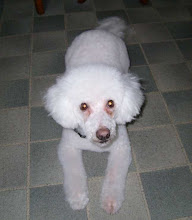The Good Earth is a book, written by an American author who had traveled extensively in China (her husband worked there), about a somewhat idealized idea of the Chinese farmer before and after the Chinese Revolution. It is the story of a man, Wang Lung, who was born into a poor farming family, as he attempts to deal with the ups and downs of farming in China; he deals with famine, flood, lazy relatives, social expectations, etc. to create a life for himself, supported by a strong, albeit unattractive, wife O-Lan.
I personally really enjoyed this book, although my personal attachment to it ebbed and flowed a bit. In general, Buck tells a great story but seems to over-idealize the life of the Chinese farmer. There was a lot of opportunity during this time period to actually say something about Chinese societal practices--foot binding, arranged marriage, slavery--that Buck just didn't take advantage of. I guess, considering that the novel was first published in 1931, there was still the issue really educating Americans about Chinese practices and culture. This was, of course, still the time when the U.S. looked to Asia with a good deal of fear and prejudice, and I think this book's main social purpose was to educate, but there was still so much there that could have been talked about. Buck's over-obsession with the idea of the "land" being one's only source of stability seemed to me to be a very American ideal that was included more to reach American audiences than to really capture Chinese culture. It seemed like more of a connecting message to extremely capitalistic Americans in the 30s rather than a real example of Chinese ideas of personal property in the land.
The one thing, however, that Buck succeeded expertly well on was definitely the family dynamics and social expectations among the Chinese during this time period. The seemingly incompatible ideals of beauty and duty for women, I think, was made rather clear. There never was the perfect woman in this novel--either the woman was ugly but resourceful and made contributions to the family's wealth (O-Lan) or the woman was beautiful but asked only for more riches without contributing more than her pretty face (Lotus). These two disparate female characters arise over and over in this novel. In addition, there seems to always be a conflict between social expectations and personal desires, particularly in relation to Wang Lung's uncle who seems to take advantage of family obligation without contributing much. Again, I think that Buck's recounting of these social issues and expectations opened up plenty of room for some social criticism, which may or may not have been appropriate for the audience at the time. Still, it was a generally good story with fantastic characters. There was just something in the novel that kept me from really connecting and reacting emotionally to what these characters are going through. Perhaps it was because I picked up on oversimplification and idealism within the recounting of the ideal farming life in China.
My rating: 9/10
Up next: absolutely positively not sure. I'll keep you updated though :)
Wednesday, July 22, 2009
Subscribe to:
Post Comments (Atom)

No comments:
Post a Comment